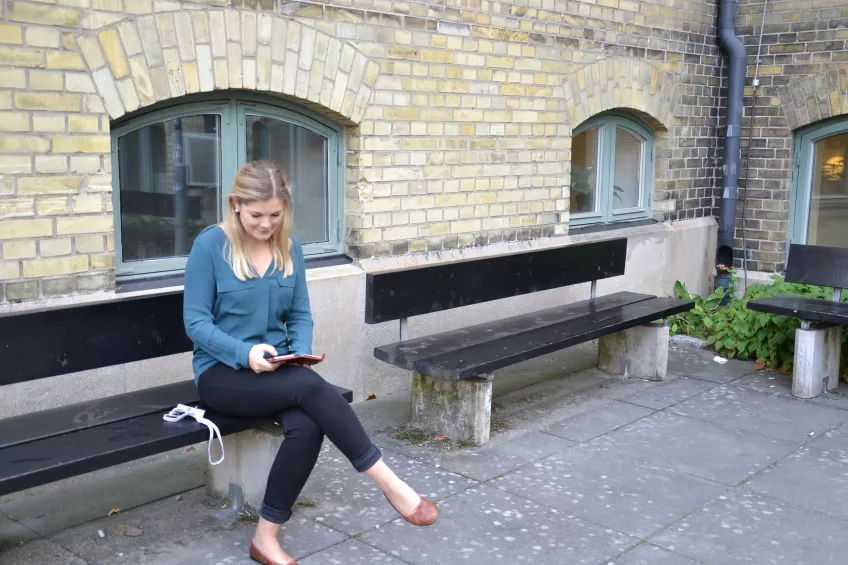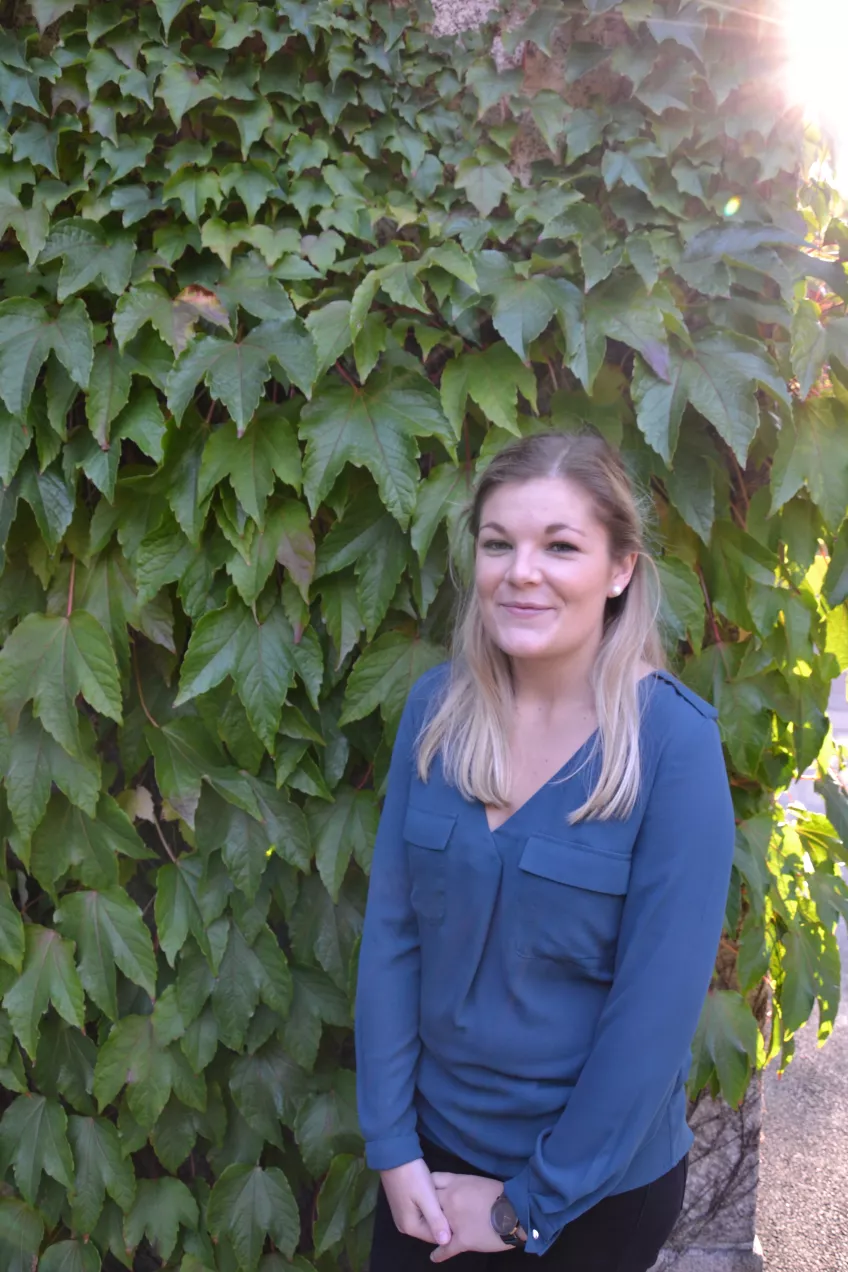PhD student Holly Knapton
Holly Knapton came to Lund to study Cognitive and Neuropsychology, but found her true calling in social psychology and political science. Now she is a PhD student at the Department of Psychology.
Holly Knapton came from the UK to Sweden and Lund University to get her Master’s degree in Cognitive and Neuropsychology, which had been the focus of her Bachelor’s degree. But in the first year of the programme, her plans took an unexpected turn. A review on Homegrown Terrorism and Exclusion got her hooked, and now - three years later - she is a full time PhD student at the faculty.
– I loved the subject during my Master’s, and found there was a gap in the field. My supervisor Emma Bäck asked me if I was interested in doing my thesis in her project, and I jumped at the idea.
We got really cool results and thus started filling the gaps that I had noticed while doing my literature review, she says.
For a few of years after she finished her Master’s degree, she worked as a research assistant for her supervisor, during which time she applied for the PhD programme. The application itself was quite daunting.
– It is key to read the guide to the application process and ensure you follow the specifications and requirements, and give yourself plenty of time to work and refine your application, she says. Further, I think it is great to try to establish contact with the potential supervisors prior to your application.
After three years, she was accepted into the PhD programme, and she was in fact glad to get that three year window.
– It gave me time to reflect on whether a career in research and a PhD were for me, and also whether the area of research I had ended up in was the right field for me. Obviously I am here right now, so I conclude it was!
However, she is still surprised she ended up in this area, and a lot of factors had to fall into place, she says. Her area of research is interdisciplinary, with aspects of social psychology mixed with political science. Specifically, she examines how social factors such as a need to belong may partly explain why individuals join political and/or extremist groups.
Holly Knapton is hoping to complete a postdoc after she finishes her PhD studies. She has also started to teach at the faculty and likes it:
– So far I have enjoyed it. I think I would be interested in continuing to teach, hopefully alongside a postdoc. However, based on my experience of focusing heavily on one field and then falling into another, I do not want to close myself off to opportunities by having a plan set in stone. That being said, I am pretty confident at the moment that I want to remain in this area of academia and research.
She discovered that the academic culture here is quite different from the one in the UK, and recommends new students not to expect the same academic culture here as in their home countries.
– I found the academic culture very hierarchical in the UK compared to Sweden. In my opinion this barely exists in Sweden. Obviously there are people in higher positions (professors, etc.), but I feel that my opinion as a PhD student is as much valued here as their opinion is. When I speak to PhDs in other countries, I often feel that this is something quite specific to Sweden (or the Nordic countries). Thus I feel very valued here.
Holly Knapton also has a few tips for new students coming to Sweden:
– Buy a decent winter coat. Waterproof, windproof and with a hood. Throw away your heels and embrace the comfortable and practical Swedish style, even on a night out.
– Get candles. When the dark evenings roll in, I find it helpful to embrace the darkness by looking forward to how cosy (“mysigt” in Swedish) your evenings can be. And don’t forget “fredagsmys”! It translates directly to Friday Cosiness. This is my favourite thing about Sweden. It can be done alone, with someone else or with a group, but it is basically about being cosy on a Friday. Get some sweets, crisps and candles and spend the evening being relaxed and cosy.
– Finally, be the initiator. Swedish people are shy. They are often considered cold, but they are in fact the friendliest people I have ever met, once you get under their shy shell. Invite them for lunch, dinner or the movies. You will soon see that shyness thaw. And don’t forget to attend the midsummer and crayfish parties! The Swedes are not shy then.
Holly Knapton
From: United Kingdom
Studies: PhD-program in social psychology and political science



